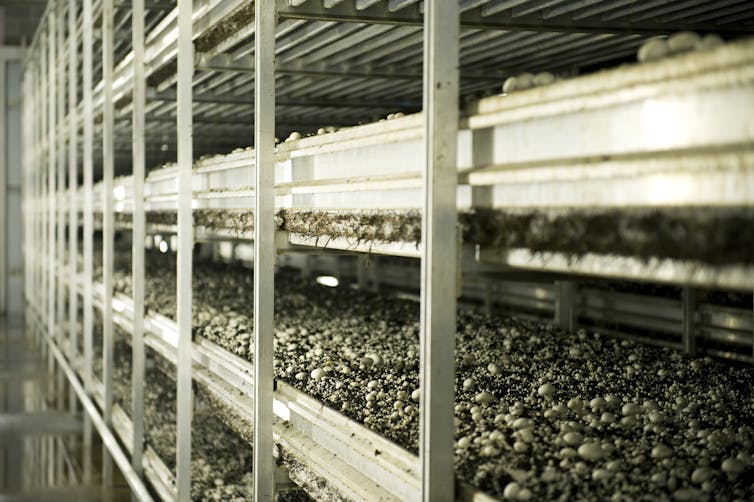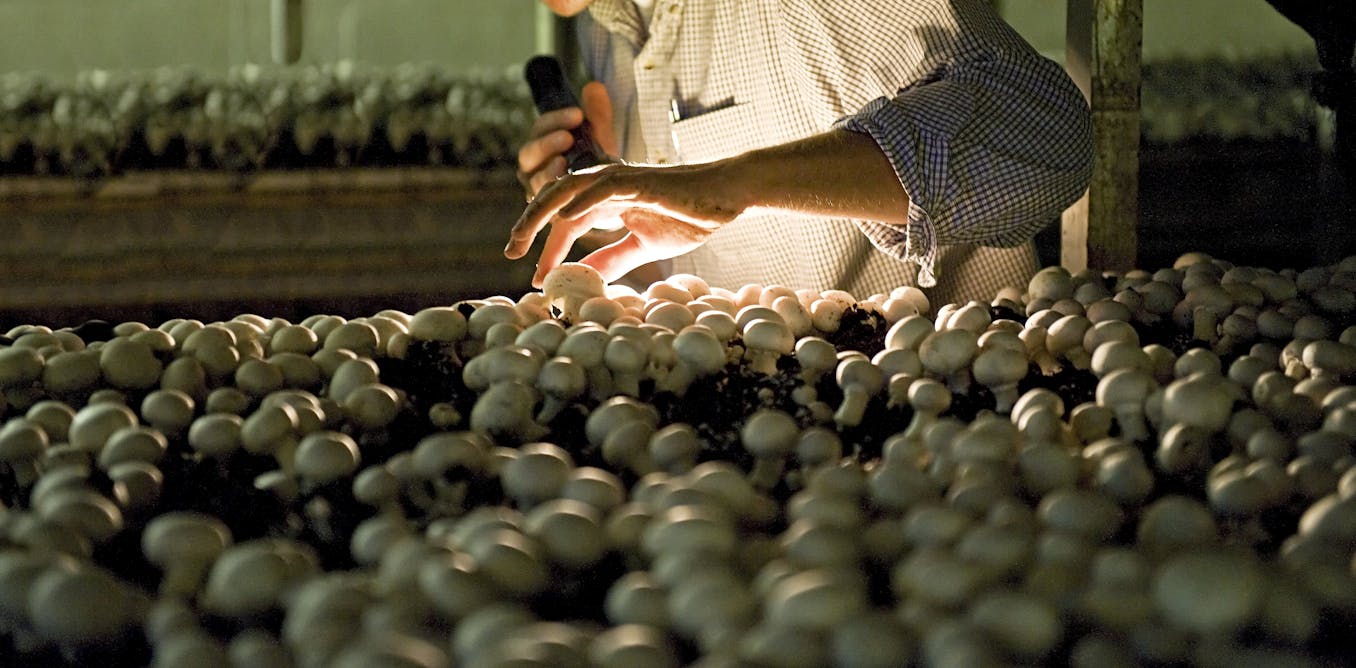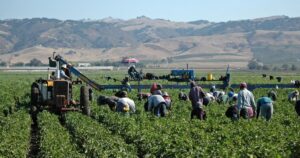A Venezuelan migrant named Luis, whose identity is protected by a pseudonym, finds himself immersed in a new world of mushroom farming in Chester County, Pennsylvania. “I had never worked with mushrooms before,” he shares. Yet, coming from a family steeped in agricultural work, he embraces the challenge. Luis is part of a significant immigrant workforce that fuels the state’s US$1.1 billion mushroom industry.
Luis’s journey to Chester County was facilitated by the Temporary Protected Status (TPS) granted in 2023. This U.S. policy allows individuals from nations deemed unsafe to remain in the country temporarily. However, in a controversial move, President Donald Trump terminated this TPS extension for Venezuelans in February 2025. Approximately 348,000 Venezuelans benefitted from the 2023 designation, but the future remains uncertain for many.
We, as rural sociologists from Penn State and a Ph.D. candidate, delve into labor dynamics within the U.S. agricultural sector. Our research highlights the mushroom industry’s ongoing struggle with labor shortages, an issue exacerbated by recent immigration policy changes. The stricter immigration measures, coupled with the termination of TPS, are expected to further diminish the labor pool in Pennsylvania’s food and agricultural sectors.

Nolabob/Wikimedia Commons, CC BY-SA
Shifts in the Mushroom Workforce
The mushroom industry in Pennsylvania has been significantly shaped by immigration trends since the late 1800s, starting with William Swayne’s pioneering efforts in Kennett Square. Italian immigrants in the early 20th century were instrumental in establishing the area as the “mushroom capital of the world.” Today, Pennsylvania is responsible for 69% of U.S. mushroom production.
Chester County alone contributed 199 million pounds in the 2023-24 season, with production extending into Berks County and neighboring Maryland. However, the industry grapples with workforce instability, which has been a persistent issue for years. Mushroom picking demands physical endurance in challenging conditions, with pay tied to a piece-rate system. This setup creates income instability, making it hard to retain workers.
Immigrant labor remains vital, with most workers hailing from Mexico and Guatemala. More recently, Venezuelans have joined this workforce, often through programs like TPS and the CHNV program, allowing them temporary legal work status in the U.S.

John Greim/LightRocket via Getty Images
The Role of Labor Contractors
With fluctuating workforce demands, mushroom farms increasingly rely on labor contractors to recruit and manage workers. This system benefits growers by providing workforce flexibility and reducing administrative burdens. However, it also presents challenges for workers, who may face less job security and benefits.
Workers report mixed experiences with contractors. For instance, one farmworker shared, “I had to miss work for some weeks because my kid was sick, and I lost my spot. But then I reached out to a contractor and was able to get another job at a different farm within a day.” Yet, this flexibility can come at a cost, such as more physically demanding work conditions.
While labor contractors help keep farms operational, they do not resolve the industry’s long-term challenge of attracting a stable workforce.

John Greim/LightRocket via Getty Images
Economic Implications of Workforce Shortages
The mushroom industry in Pennsylvania faces economic challenges due to labor shortages. With fewer workers available, farms may struggle to meet demand, potentially driving up prices for consumers. Retailers sourcing mushrooms from other regions could further increase costs due to additional transportation and supply chain expenses.
Efforts to address these issues include legislation like the Farm Workforce Modernization Act of 2021. This bill, which passed the House but stalled in the Senate, proposed solutions such as creating a Certified Agricultural Worker status and expanding H-2A visa eligibility to year-round agricultural workers. Without such measures, the industry grapples with ongoing labor challenges.
Read more of our stories about Pennsylvania.






